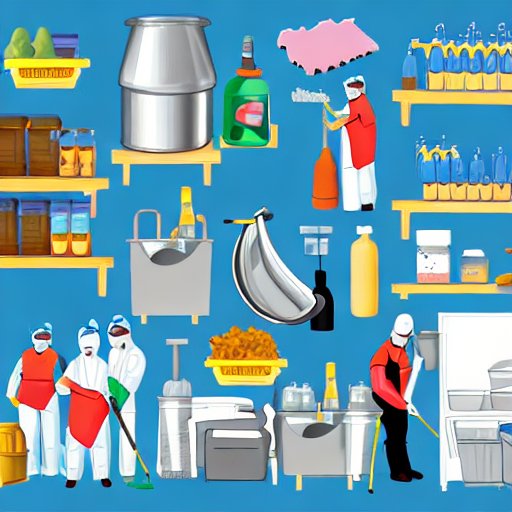Food Safety, Hygiene, and Sanitation Training

Our Food Safety, Hygiene, and Sanitation Training program is designed to help food industry professionals, from restaurant staff to food manufacturers, ensure that they meet the highest standards of food safety and cleanliness. This comprehensive training is crucial for preventing foodborne illnesses, maintaining public health, and ensuring compliance with food safety regulations.
Why Choose Our Training?
Key Learning Areas
- Expert Trainers: Learn from experienced professionals who are well-versed in food safety protocols, regulations, and real-world best practices.
- Comprehensive Coverage: Our training provides a well-rounded approach to food safety, hygiene, and sanitation, ensuring all key aspects are thoroughly covered.
- Flexible Learning Options: Available in both in-person and online formats to accommodate your schedule and preferred learning style.
- Certification: Upon successful completion, participants will receive a Food Safety Certification, a widely recognized credential in the food service and manufacturing industries.
- Improved Workplace Standards: Equip yourself and your team with the knowledge needed to reduce risks, improve hygiene practices, and enhance overall food safety in your organization.

What You Will Learn
Our Food Safety, Hygiene, and Sanitation Training program offers a comprehensive curriculum focused on building the core skills necessary for success in both your personal life and career. Key areas include:


- Understanding the importance of food safety
- The relationship between food safety, hygiene, and sanitation
- Overview of foodborne illnesses, their causes, and their impact
- Food safety regulations and standards (e.g., HACCP, FDA, USDA)
- Personal hygiene and its impact on food safety
- Correct handwashing techniques and proper use of hand sanitizers
- Uniforms, hairnets, and gloves: Maintaining cleanliness and preventing contamination
- Safe practices for handling food and utensils
- Understanding the significance of hygiene in food production and service
- Cleaning versus sanitizing: Differences and importance
- Developing effective cleaning schedules for kitchens and food facilities
- Proper use of cleaning agents and disinfectants
- Safe storage and disposal of cleaning chemicals
- Procedures for cleaning and maintaining kitchen equipment and utensils.
- The importance of temperature control in preventing bacterial growth
- Correct storage temperatures for different types of food (refrigeration, freezing, hot holding)
- The “Danger Zone”: Understanding temperature ranges that promote bacteria growth
- Best practices for thawing, cooking, and cooling foods
- Safe food handling during transport and delivery
- Identifying and preventing cross-contamination in food preparation
- Proper separation of raw and cooked foods
- Safe handling of allergens and special dietary foods
- Using color-coded cutting boards and utensils to avoid cross-contact
- Preparing for food safety inspections and audits
- Understanding the role of health inspectors
- Maintaining records for traceability and compliance
- How to pass an inspection: Common violations to avoid
- Conducting internal audits to maintain standards

Benefits of Food Safety, Hygiene, and Sanitation Training
- Improved Food Safety: Reduces the risk of foodborne illnesses and ensures compliance with health regulations.
- Customer Trust: Builds customer confidence in your business by maintaining high hygiene and sanitation standards.
- Contamination Prevention: Prevents cross-contamination and allergen risks, ensuring safe food handling.
- Legal Protection: Helps avoid fines, lawsuits, and food recalls by adhering to food safety laws.
- Operational Efficiency: Streamlines cleaning and sanitation processes, improving resource use and equipment lifespan.
- Employee Confidence: Increases employee morale and productivity by providing clear safety procedures.
- Business Growth: Enhances customer satisfaction, leading to increased sales and positive reviews.
Happy Faces of Happy Students
This program has greatly improved our kitchen operations. The training provided practical tips on how to improve cleanliness and safety in food preparation, which has helped reduce the number of safety incidents.






